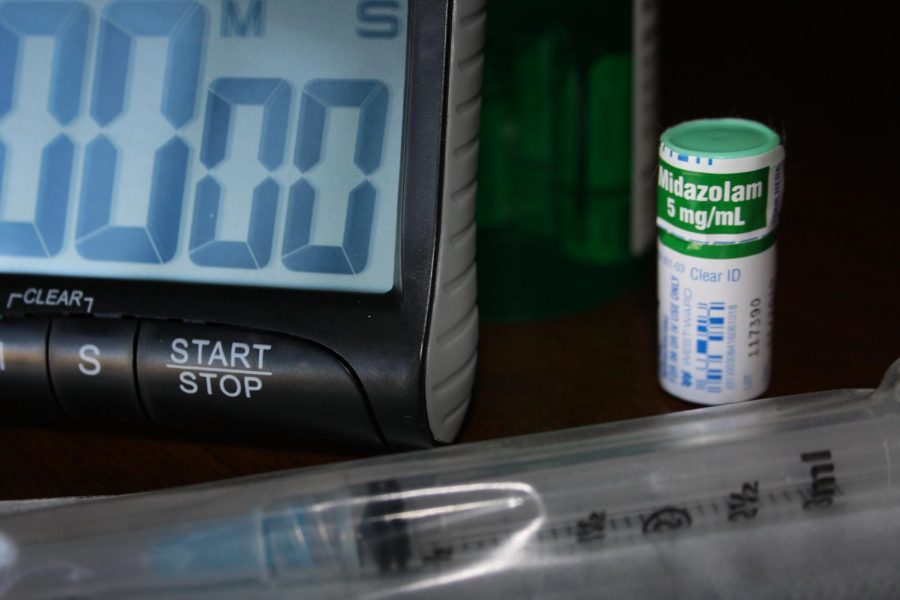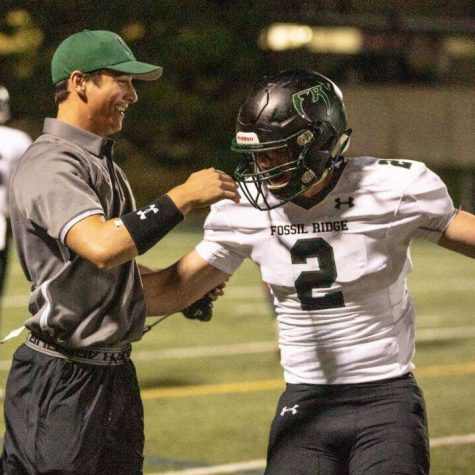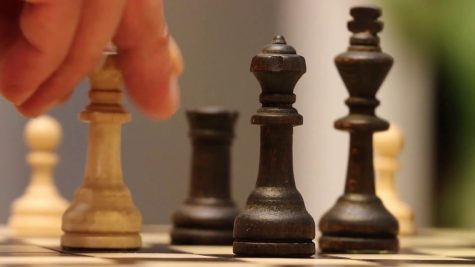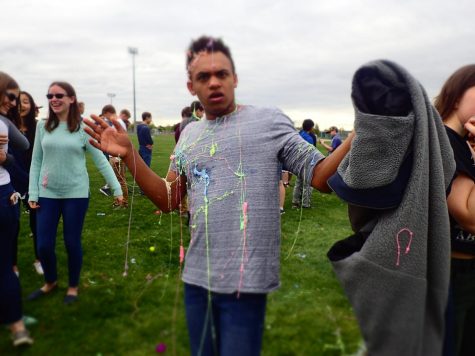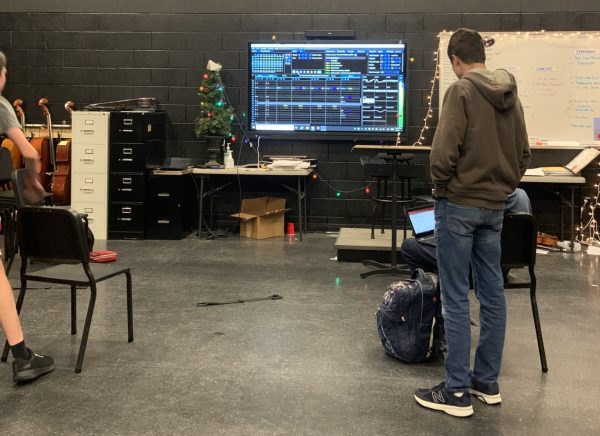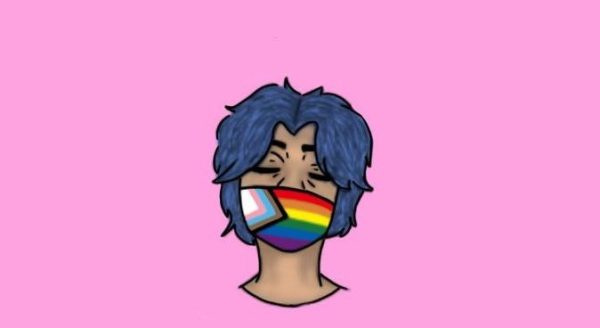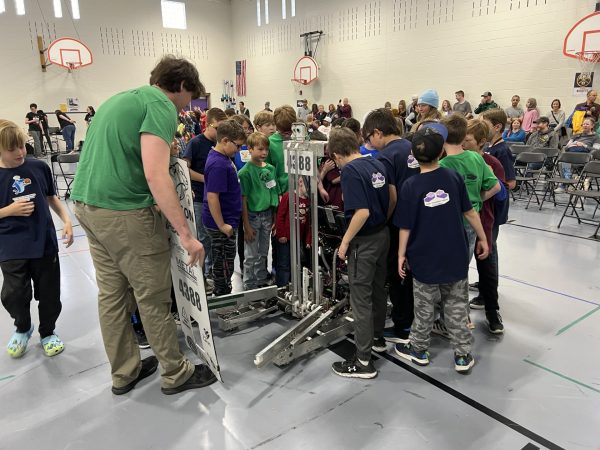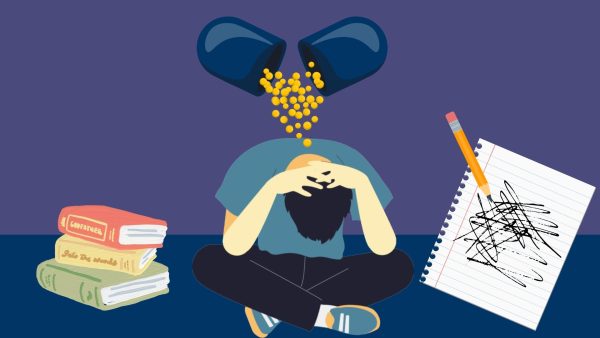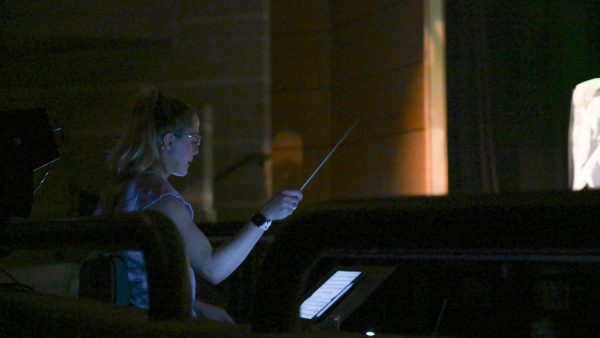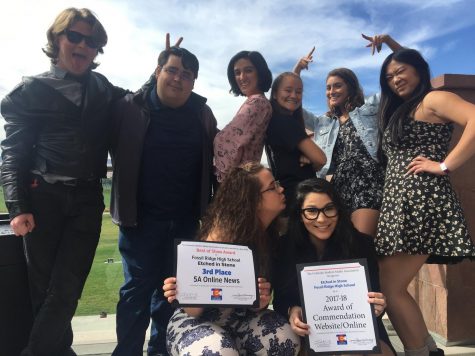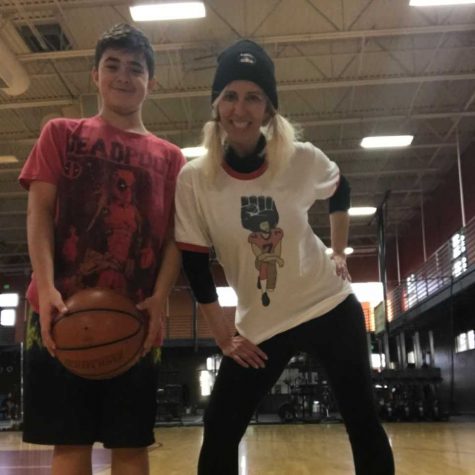Health first: What I learned from having seizures
Lifestyle and habits impact all aspects of student health, from physical health to mental health.
An emergency kit, containing a timer for seizure duration, medication to stop seizures, and other vital medications go with me everywhere now.
For a long time, my physical health was the aspect of my health I always assumed to be fine, and I took it for granted.
With almost seventy percent of teens in good health with no physical conditions, health is not too much of a day-to-day concern for most teenagers. It is the kind of thing only brought up a few times a year for situations such as the annual physical, or when someone gets sick. Personally, in the past, I rarely put any thought into my physical health and focused more on my mental health, as I have several mental illnesses. For a long time, my physical health was the aspect of my health I always assumed to be fine, and I took it for granted. However, my perspective on health has shifted immensely in the past few months after everything took a turn for the worse. I have learned more about what it actually means to be healthy, and it goes far beyond not getting sick.
On October 7, I had my first seizure. It was something I never thought would happen to me, and I thought it only ever really happened to old people or babies. However, epilepsy is most commonly diagnosed in people under the age of twenty and over the age of 65, so it is common for teens to experience this. With no family history of seizures and no warning symptoms beforehand, it was something completely unexpected and unexplained. One minute, I was sitting at the dining room table during my grandma’s birthday party, and, after having the sensation that I was sleeping, I woke up on the floor. My memories following the incident are vague, as I was temporarily blind and I had various levels of consciousness. After having a seizure, people sometimes go temporarily blind due to overstimulation of the visual cortex. Many also experience headaches, nausea, problems with memory, and many more things. When I was fully aware of what was going on, I was being carried out of my house by paramedics and taken in an ambulance to the hospital.
On October 25, I had my second seizure. Although it was far less severe than my first seizure, it was close in time to when I had my first one, bringing new concerns. Since I had already had a seizure before, when I “woke up” and my dad told me what happened, I understood enough to not freak out. Regaining consciousness was not as overwhelming the second time around, I recognized the same feelings I had before and was therefore less confused. I had already been through this, so it was just a matter of beginning the recovery process all over again.
Picking up the pieces after seizures was a learning process for me. After a seizure, I would process information slower, and it was hard for me to get anything done. Mentally, I was not present in anything. I was constantly tired, even beyond my normal level of tiredness from sleep deprivation. It would take around a week for me to get back to normal, to be able to retain information given to me, and get back on track. Keeping up in school was a struggle, between missing classes and not being able to comprehend what was actually going on when I was in school. Work piled up, but at the same time I had to take another step back to focus on rest.
From talking to my neurologist, I learned that many of the choices I make on a day-to-day basis could be contributing to my seizures. Things such as not getting enough sleep, skipping breakfast trying to get out the door on time, and not managing stress well could be contributing causes. Most adolescents get, on average, seven hours or less of sleep each night, two hours less than what is recommended. Additionally, “Breakfast is the most important meal of the day” is not just a cliche slogan. Eating breakfast improves student memory and attention, as proven through scientific studies. Although only seen as a negative thing, stress is not always bad. Good stress can allow teens to rise to the occasion when a difficult challenge is given. However, without positive coping skills for when stress builds up, stress becomes a negative thing and reduces the brain’s ability to function. By ignoring seemingly little things such as sleep, breakfast, and stress management, teens are damaging their health in major ways, even if they are not always recognizable.
As a perfectionist who cares a lot about doing well in school, I had to learn to shift my perspective. Even though I grew up hearing “school comes first”, making my education my top priority was damaging everything else in my life. I had to force myself to sacrifice perfect scores at times to focus on what was truly important in the moment, and that took time to accept. Although I believe there is value in education and it should be an important thing in students’ lives, sacrificing health leads to problems much bigger than a low score. At the same time, however, focusing on health does not give students the right to get out of doing everything; there should be a balance of focusing on health while also doing well in school.
Getting sleep has been far more helpful than I expected. I had to start getting to sleep at a reasonable time after my seizures, which was hard at first. I used to stay up until around three in the morning to get all my work done, and I have had to learn to stop even if I do not finish everything in order to get more sleep. I found getting more sleep frustrating at first, because I lost valuable time I could use to get caught up on all my missing assignments.
I realized I am my biggest critic, and I pressure myself into situations that cause me unnecessary stress.
I specifically remember one night being up when I was up way past midnight. Both of my parents were telling me it was okay to get some sleep and not do as well on an upcoming test because of being less prepared. I refused because I believed I had no other option but to stay up, because if I did not do well on the test, I felt like it would be the end of the world. From this, I realized I am my biggest critic, and I pressure myself into situations that cause me unnecessary stress.
Since then, I have learned to come to an understanding with myself – a compromise. I have found a middle ground between doing well in school and taking care of my health so both can be accomplished. Finding balance between my school life and everything else has improved everything. Getting more sleep despite heavy workloads at school has been hard for me, however, in the long run, it has helped so much. I have a longer attention span in class, and I can get my homework done faster after school because I do not have to fight the urge to fall asleep in the middle of my studying.
Getting more sleep has also allowed me to wake up more easily in the morning, allowing me to actually get up on time to eat breakfast. I have been working on eating breakfast every morning before leaving instead of rushing out the door, and also bringing a good lunch to school. I have not directly seen benefits of not skipping meals yet, but even if I cannot directly tell, I know it is helping me. I know it is unreasonable to skip meals because of stress, and I am working on breaking this bad habit.
Managing stress has been the most difficult thing to change in my life. There will never be an actual way to eradicate stress, but reducing the excessive amounts of it has made tasks feel more manageable. What I have recently realized about myself is I cause more stress for myself than anyone else. Working on ending bad habits, such as procrastination, has helped get rid of all the ways I stress myself out. This makes everything feel less crazy, rather than last minute. I am still not perfect at this; it will take a long time for me to create better homework habits. But any positive change, no matter how small, is helping.
Mental illness is just as important to treat as a broken leg, and mental health cannot be sacrificed because of school.
All aspects of health are important, physically and mentally. In the United States, one in five teens suffer from a severe mental disorder that negatively impacts their daily lives. This means more teens have mental health problems than physical health problems. With suicide being the fourth leading cause of death for teens in the United States, mental health can not be ignored. Mental illness is just as important to treat as a broken leg, and mental health cannot be sacrificed because of school.
To my surprise, since having seizures, my mental health has improved immensely. No, having seizures has not magically cured me of my mental illnesses or made my life easier in any way, but I have learned to manage the various aspects of my life in more effective ways. I feel far more under control of my life than ever before, and I am learning how to accept whatever comes my way. Most importantly, I have learned to not be so hard on myself, which has been by far the most difficult but most rewarding thing I have worked on in the past few months.
I have learned to accept when I could not finish everything or something did not go well. As a perfectionist, it has been hard to not get A’s on all my assignments and tests. I have learned to let go of this tendency a little, and have instead adopted the idea that if I try my best, that is good enough. I have learned to not tie my worth to my grades, and have instead learned to find the value of myself from other things. My entire perspective has changed. I have found positivity in celebrating the things that do go well, everything from my first 90% on a math test for the semester to getting caught up in a class. I have learned to take things one day at a time and to be proud of my perseverance. This shift in my mindset has radically improved my mental health, and I feel happier than I have in years.
Something I was not expecting after having seizures was the authority people have assumed they have over my emotions. Because of the stigma surrounding seizures and epilepsy, people tried to immediately assume how my brain works, or treated me like I was broken in some way. People also would try to tell me how I should be feeling, without allowing me to go through this experience according to my own emotions. When people found out I had a seizure, the most common question I got was, “You must be so scared all the time now. Are you afraid of having another one?” Although some said it with genuine concern, others wanted to police me when I said I was doing fine. If I responded this way, many would try to convince me with all the reasons why I should be scared, like something was wrong with me.
I will persevere. I will continue to live my life, and I am not letting my seizures define my emotions.
To be honest, I was not scared after having either of my seizures. Sure, I was a little anxious to have a seizure where I would fall and hit my head, but I was still not afraid. I have continued with this mind-set ever since. I will persevere. I will continue to live my life, and I am not letting my seizures define my emotions. I have overcome so much from these experiences, and I feel, if anything, less afraid.
Since my seizures, I am doing so much better. I have been seizure-free for over a month now, and all aspects of my health are better than they have been in years. I am still finding ways to not compromise my physical health and mental health and make taking care of myself my priority. Keeping health in mind while trying to do well in school is tough, and it initially caused more stress to eliminate school as my top priority. However, the more I focus on both, the more everything in my life has improved.
Most teens do not worry about their health, but they should not ignore it. Health is not something only people with illness, injury, or age should focus on; it is important throughout one’s entire life. Health is incredibly complex, and goes far beyond sleep, nutrition, and stress. However, these are some of the simple examples of ways teens can improve their health. So many things contribute to overall health, and all allow people to get up and be able to, well, live. If different aspects of health are ignored, there are consequences. They are not always obvious. For example, I did not realize how much I was damaging my health through negative habits until it was an extreme situation. Recognizing how to improve health as a teen will create good habits that set students up for life. Health is not just important when there are problems – it is something to be taken care of and maintained.
To every student reading this, I encourage you to find balance. Balance all aspects of life, and do not put too much focus on one aspect or the others suffer. Take care of yourself; health should come first. Because, without health, nothing else can happen.
Your donation will support the student journalists of Fossil Ridge High School. Your contribution will allow us to purchase equipment and cover our annual website hosting costs.

Co-Editor in Chief and senior Anna Henning is ecstatic to be entering her fourth year of journalism. Henning has grown up loving writing, and has taken every writing class she can. She really enjoyed taking Creative Writing freshman year, but Journalism II has always been her favorite class. Henning...



